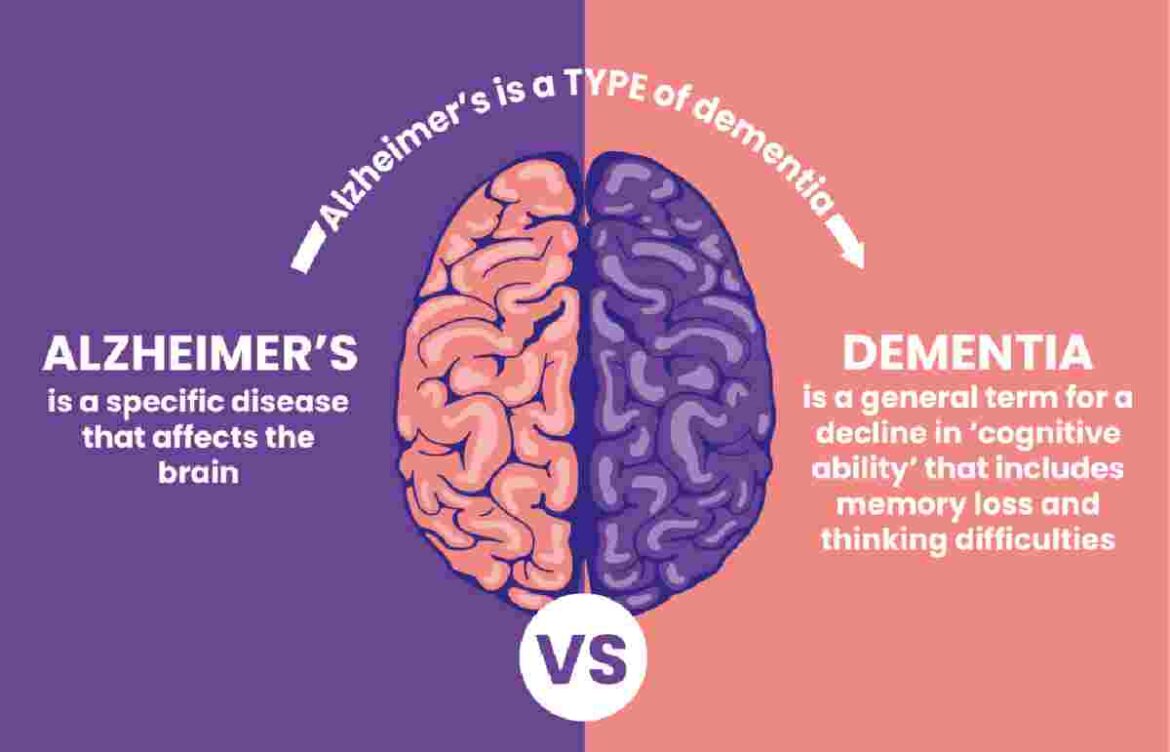
What’s Alzheimer’s complaint?
Alzheimer’s complaint is a brain condition that causes a progressive memory decline in thinking, literacy, and organizing chops. It ultimately affects a person’s capability to carry out essential diurnal conditioning. Alzheimer’s complaint( announcement) is the most common cause of madness.
The symptoms of Alzheimer’s worsen over time. Experimenters believe the complaint may start 10 times or further before the first symptoms appear. Announcements most generally affect people over the age of 65.
What’s the difference between Alzheimer’s and madness?
Madness describes the state of a person’s internal function. It’s not a specific complaint. It’s a decline in cognitive function from a preliminarily advanced position severe enough to intrude with diurnal living.
A person with madness has two or more of these specific difficulties, including a change or decline in:
- Memory.
- logic and running of complex tasks.
- Language.
- Understanding visual form and space relationship.
- behavior and personality.
Madness ranges in inflexibility. In the mildest phase, you may notice a slight decline in your internal functioning and bear backing on diurnal tasks. At the most severe stage, a person depends entirely on others for help with simple diurnal tasks.
Madness develops when infections or conditions impact the corridor of your brain, which is involved with literacy, memory, decision-making, or language. Alzheimer’s complaint is the most common cause of madness, counting for at least two-thirds of madness cases in people 65 and older.
Other common causes of madness include
- Vascular madness.
- madness with Lewy bodies.
- Frontotemporal madness.
- madness due to Parkinson’s complaint.
What are the stages of Alzheimer’s complaint?
Alzheimer’s complaint associations and healthcare providers use colorful terms to describe the stages of Alzheimer’s complaints based on symptoms.
Some associations and providers frame the stages in terms of madness
- Preclinical Alzheimer’s complaint.
- Mild cognitive impairment( MCI) due to Alzheimer’s complaint.
- Mild madness due to Alzheimer’s complaint.
- Moderate madness due to Alzheimer’s complaint
- Severe madness is due to Alzheimer’s complaints.
Symptoms of Alzheimer’s complaint include:
Memory loss: A person may have difficulty pleasing new information and flashing back information. It can lead to
- repeating questions or exchanges
- losing objects
- forgetting about events or movables
- wandering or getting lost
Cognitive poverties: A person may witness difficulty with logic, complex tasks, and judgment. It can lead to
- a reduced understanding of safety and risks
- difficulty with plutocrat or paying bills
- difficulty making opinions
- difficulty completing tasks that have several stages, similar to getting dressed
Problems with recognition: A person may become less suitable to fete faces or objects or less appropriate to use essential tools if they can see them.
Spatial mindfulness with Problems: A person may have difficulty with their balance, trip over, or slip effects more frequently, or they may have trouble orientating apparel to their body when they get dressed.
Problems with reading, speaking, or writing: A person might develop difficulties thinking of common words or make further speech, spelling, or writing crimes.
Personality or behavior changes: A person may witness changes in personality and behavior that include:
- Getting worried, angry, or bothered more frequently than ahead.
- A loss of interest in or provocation for conditioning they generally enjoy.
- A loss of empathy.
Conclusion
Alzheimer’s complaint is the most common cause of madness. Alzheimer’s complaint is a natural process that begins with the appearance of a buildup of proteins in the form of amyloid pillars and neurofibrillary befuddlements in the brain. It causes brain cells to die over time and the brain to shrink.
